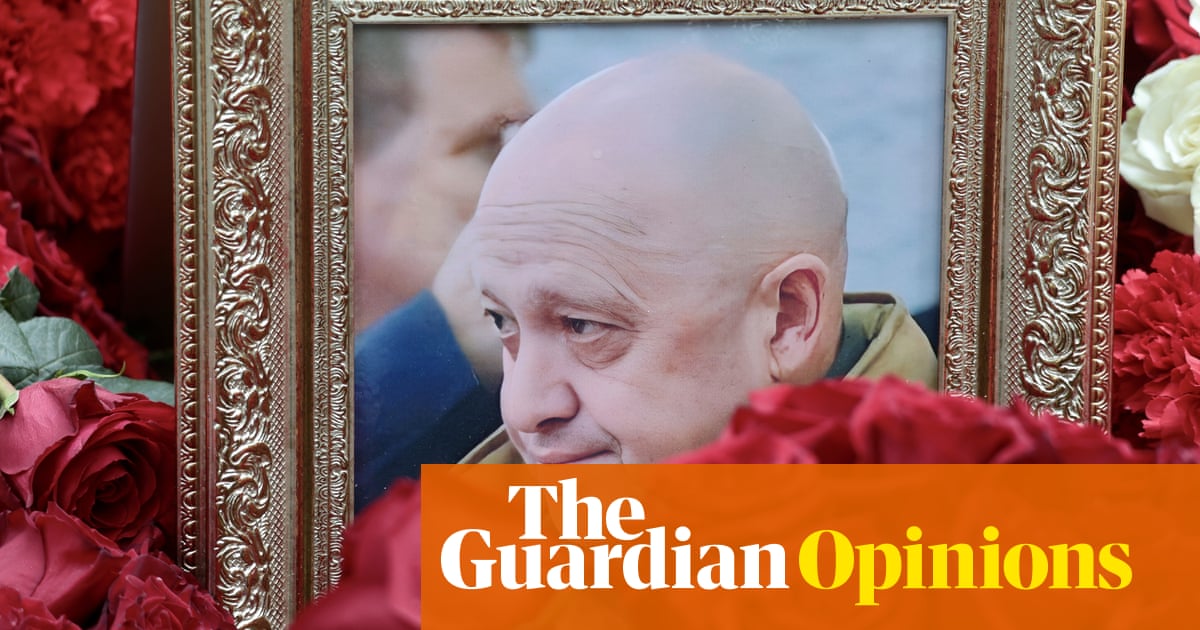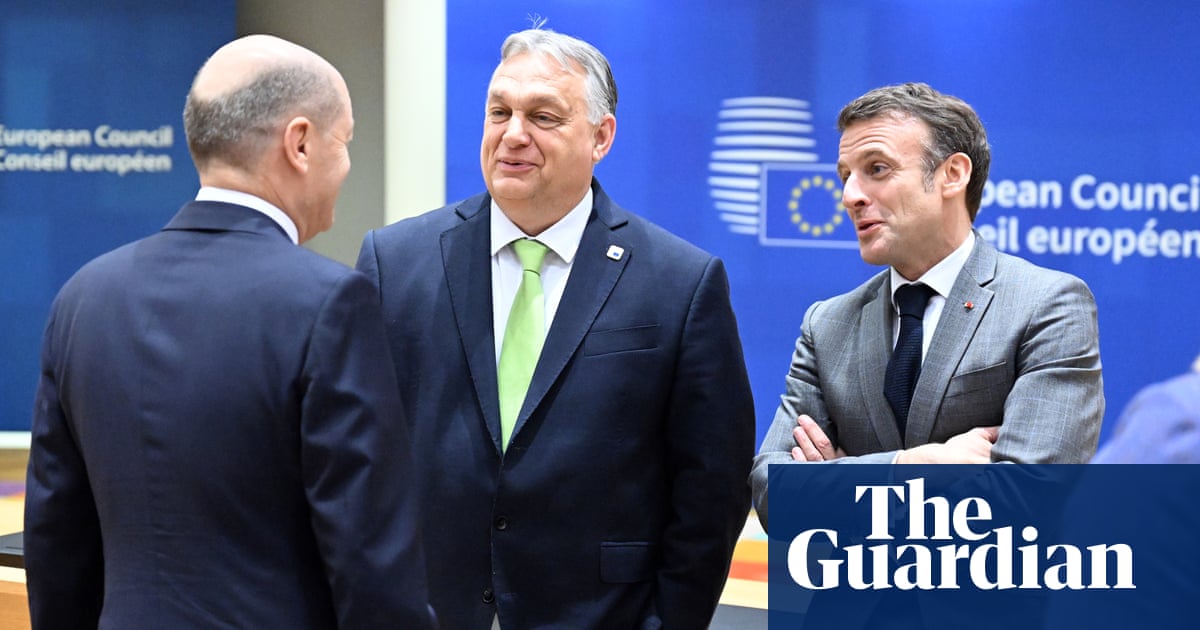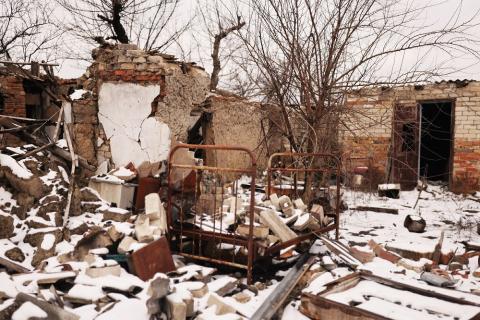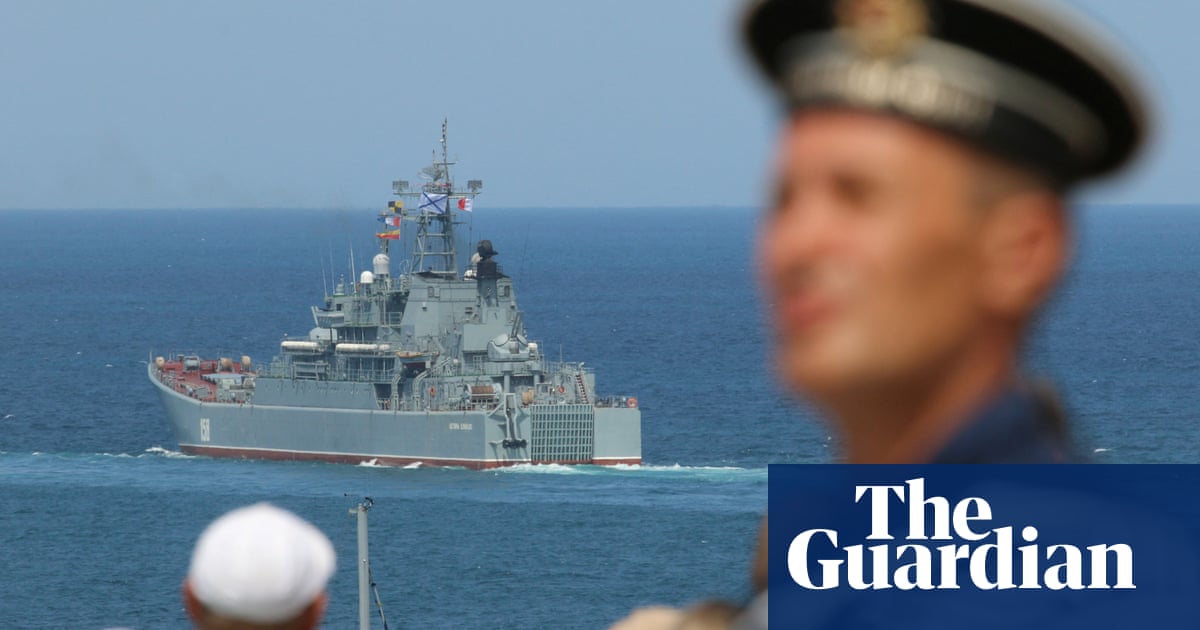
If the outcome of the war could be determined by the toss of a coin, the camps would be clear: democracies would want Ukraine to win, autocracies would want it to lose. But real-world political outcomes are not so binary. They typically fall on a spectrum between annihilation and total victory. This leaves the democracies divided into at least three camps: the English-speaking, the western European and the eastern European minus Hungary. What Putin calls the “collective west” all want Ukraine to win. But not necessarily to the same extent.
For Poland and the Baltic countries the matter is simple. They want Ukraine’s victory to be unequivocal. The advantages would be both material and psychological.
Ukraine’s victory would soothe a centuries-old angst. For Poland, Russia has augured conquest, partitions, genocide, colonialism and communism. The obsession is mutual. In his 2021 essay arguing that Ukraine and Russia were historically one people, Putin included more than 30 references to Poland – some hinting that Ukrainian national identity was plotted by Poland’s elites. Over the past 600 years, Russia and Poland have waged more than a dozen wars. There is little love lost between them.
Ukraine’s success would also entail a historic chance for the region to exit the status of the periphery and become a counterbalance to the EU’s big western member states. Victory in Ukraine would probably spill over into regime change in Belarus – the second missing piece in the historic project of the Intermarium, or a buffer of allied countries stretching from the Baltic to the Black Sea to counterbalance Russia’s power.
For Poland, such a scenario would be a double jackpot. For the first time since at least the 17th century, we would get over the problem of “the neighbourhood” – a comfort that most western Europeans have taken for granted since the end of the second world war. A united region across eastern Europe, with the human and economic capacity of more than 100 million citizens, could offset the dominance of the old Rhineland in the EU.
This possibility is why the Kremlin systemically underplays the region’s potential. Its rhetoric treats Ukraine as nothing more than a repository of Slavic peasant folklore, a superpower only in handicrafts. In reality, Ukraine, birthplace of Sergei Prokofiev and Sergei Korolev, the father of Soviet space exploration, hosts swathes of unexploited natural resources, a potential for emissions-free electricity, some of the continent’s most fertile soils, a space and aviation industry that has built the world’s largest aeroplane, and political leaders who command respect across Europe.
Tapping into that potential requires economies of scale, transparent institutions and capital investments. Some of this scale could come from regional integration with its allies. Curbing corruption and the power of the oligarchs was already very much on the agenda of the Zelenskiy administration. With victory, investment money would flow.
Poland and Ukraine are much poorer today than France and Germany. How could they realistically become a countervailing force in the future EU? Like many postwar economic miracles – such as those of South Korea, Japan and West Germany – this one is also likely to be co-sponsored by a superpower with much to gain from the reconfigured political order.
The US is already pumping money, technologies and thinktanks in to eastern Europe. In return, it expects influence and a clear stance on China. This is a price that seems too high to Europe’s west but not to its east. Lithuania was ready to risk trade relations with China to please the US, while Ukraine and the Czech Republic have pivoted to sourcing nuclear fuel from the US. Poland recently contracted with an American company to build its first nuclear power plant.
Western Europeans might not be ready for the geopolitical centre of gravity to shift eastward – let alone at the price of increased US influence across the continent.
After the cold war, western Europe became a reluctant ally of the US and the main beneficiary of a post-Berlin Wall triangulation: Russian energy, Chinese markets and American security. Now the first pillar is gone and the second may be the price to pay for the third.
France and Germany currently endorse a policy of “strategic autonomy” for Europe, a defence and security idea that could one day lead to an EU army. Putin’s Russia has pushed the goal of a Eurasian union stretching “from Vladivostok to Lisbon”. What both strategies have in common is an aversion to “Anglo-Saxon” dominance in Europe.
American and eastern European interests today seem aligned. There are two looming reasons why they may diverge. First, the US is way more afraid of a repeat of the chaos of the 1991 Soviet Union implosion, and the attendant risks to nuclear security. These security risks are not taken lightly in eastern Europe. But if you already live in an at-risk neighbourhood and there’s the possibility of major improvement, your perspective can be different.
Second, there seems to be a residual hope in the US that, as long as Russia stands on its feet, it can eventually be pivoted towards the west and used against China – in a reverse Kissinger manoeuvre. In eastern Europe, this idea is greeted with horror. It has been tested many times with Putin (too many – if you ask eastern Europeans). The region fears that it could be tried again with Putin’s successor – especially if Russia, in lieu of major reforms, pulls out of a hat someone such as Alexei Navalny, aesthetically acceptable for the west but still wedded to Russia’s role as a great power.
But these are opportunities and risks, not givens. Poland’s Law and Justice party – bogged down in a dignity-driven conflict with the EU over the rule of law – has forfeited the chance to effectively take Britain’s place in the EU post-Brexit. But it’s not missing the opportunity to be Ukraine’s reliable ally, nor is it losing sight of the geopolitical positives that may ultimately flow from this.
Whether the ruling party is able to hold on to power past the 2023 elections or not, the country’s geopolitical course is steady. In March the Polish parliament voted overwhelmingly in favour of granting Ukrainians special rights to Poland’s education, health and labour market. More than 80% of Ukrainians have a good or very good opinion of Poles. Three-quarters say their view has improved since Russia’s invasion. Despite troubled relations up to 1945, Ukrainians perceive Poles as the single most friendly society today.
All major Polish parties support Ukraine but they also hope that, while the arc of the history is long, it will eventually bend towards a new geopolitical order. They want to see Ukraine emerge from this war as a star in the making, Europe’s centuries-old western orientation overturned – and Poland the undeclared winner.
Anna Gromada is a social scientist and co-founder of the Warsaw-based Kalecki Foundation thinktank.
Krzysztof Zeniuk is an economist












